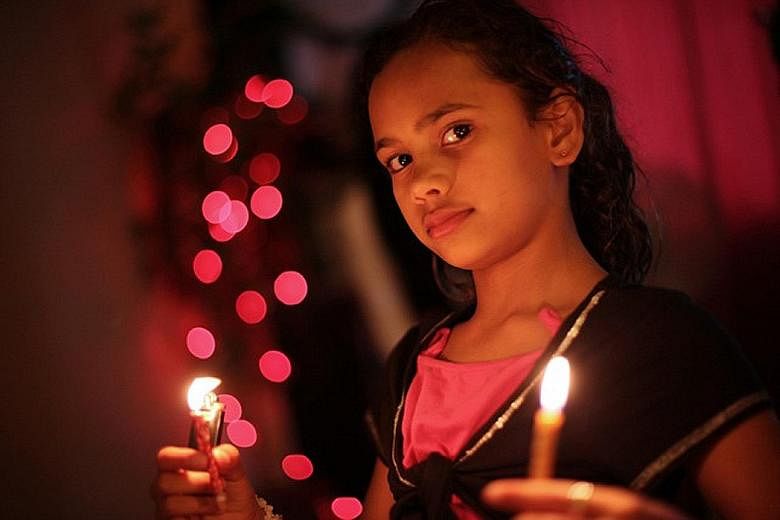It is a simple concept: Capture what it feels like to be 11, a special age when childhood idealism is tempered with practical knowledge of the world, just before teen self-consciousness and hormones kick in.
Melbourne-based film-maker Genevieve Bailey took this idea to 15 countries, filming and interviewing more than two dozen 11-year-olds in a project that took six years to complete.
Her first feature documentary, the critically acclaimed I Am Eleven (rating TBA, 94 minutes), premieres tomorrow at The Projector. Bailey will be present to take questions from the audience.
Singapore Airlines is also screening the movie on flights next month.
Speaking to Life on the telephone from Dublin, Bailey says 11 was "my favourite age in life".
"The world feels big in a good way, and at our feet."
Now 34, she was on the first day of her job in the newsroom of a newspaper in Melbourne when the 2004 Indian Ocean tsunami struck. That, combined with the recent death of her father and her involvement in a serious car accident, drove her to the film project as a form of therapy.
I Am Eleven was a New York Times Critics' Pick and winner of the Outstanding Documentary Award at the Newport Beach Film Festival, among others.
Reviewers have focused their praise not just on the charming innocence of Bailey's subjects, but also their humorous observations and profound thoughts on life.
With partner and co-producer Henrik Nordstrom, she set off to Japan in 2005 to film her first child, Rika, before moving on to other places to meet other 11-year-olds such as elephant trainer Goh in Thailand. Her last interview took place in her home city with Jamira, an Aboriginal child in a singleparent household.
Quite often, she landed in a country without a plan of action other than to ask as many people as she could if they knew any 11-year-olds.
She had a few rules. The child had to be 11 and want to be involved, and his or her guardians had to allow it. Bailey would not allow herself to leave a place until she found a child subject.
She stayed away from checking with teachers, because they tend to choose the top students or the best actors and she "wanted to avoid another adult filtering".
In Berlin, for example, she asked the owner of a bookstore if she knew any 11-year-olds. Bailey was told to open a book with photographs of 10-year-olds published the year before. She pointed to a girl called Luca, because she liked the name.
"And the bookstore owner said, 'Yes, I know her, she lives in the apartment across the street.' I met Luca that night," Bailey says.
She was at a friend's home in England when Sharif, another subject, showed up offering to wash cars.
"People ask me how many hundreds of kids I had to audition to find these ones in the film. I didn't audition any of them - it is about creating a space so the kids can be comfortable enough to express themselves," she says.
She met several subjects in an orphanage in Kerala, India, through another documentary-maker.
A girl, Fang, living in Lijiang in Yunnan, China, was introduced by the owner of the inn where Bailey was staying.
She and Nordstrom paid for everything out of their own pockets.
"No film funding, no sponsors, no wealthy parents," she says.
"Every year, we would dedicate time to work, save money and travel. Six years on, the film was finally ready. I would have loved to go to many more places, but we had run out of money and also had over 100 hours of footage. It was time to edit," she says.
•I Am Eleven premieres tomorrow at 6.30pm at The Projector, Golden Mile Tower, 6001 Beach Road. Director and producer Genevieve Bailey will be present after the screening for questions. Tickets at $13 from http://theprojector.sg


